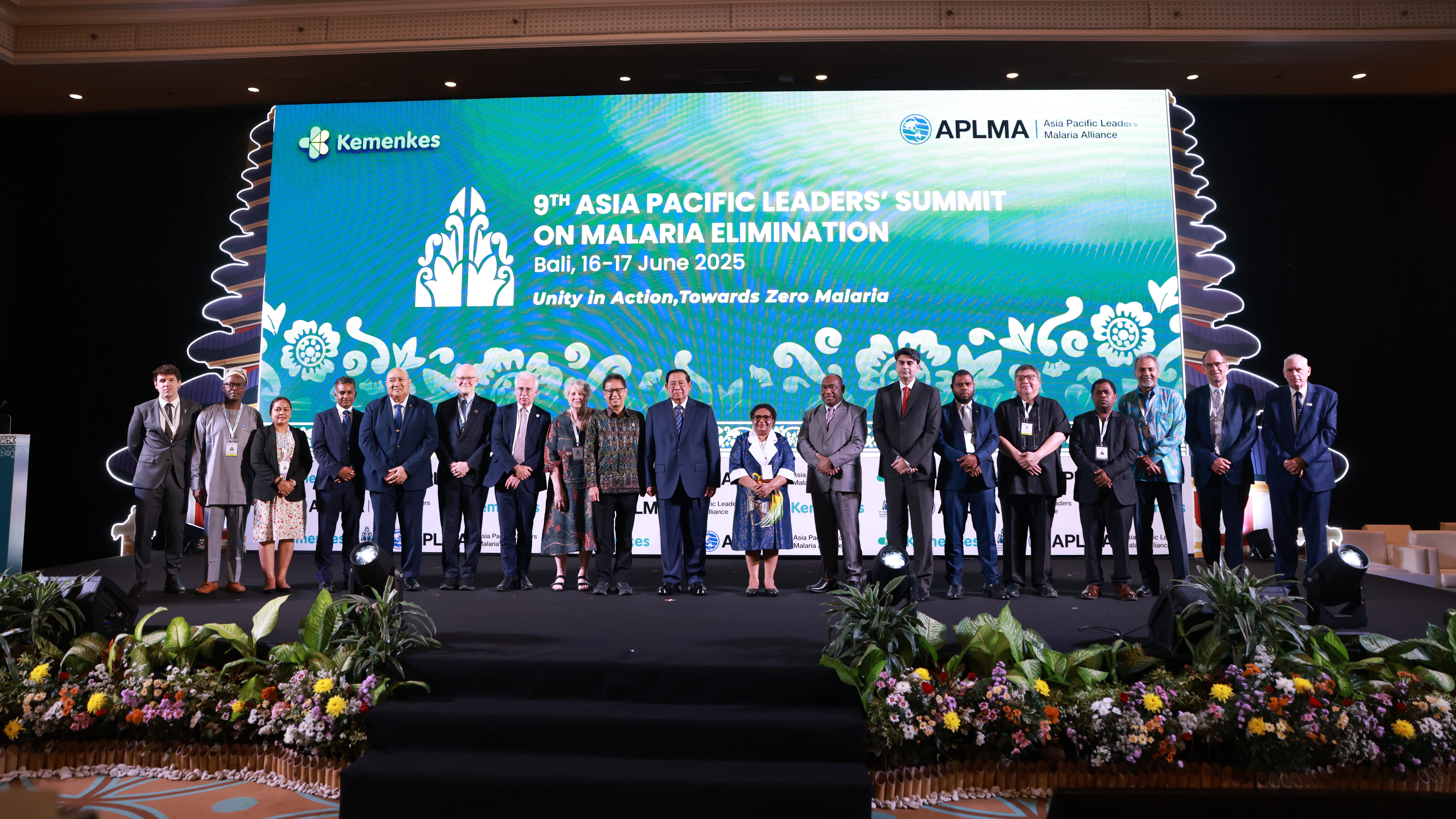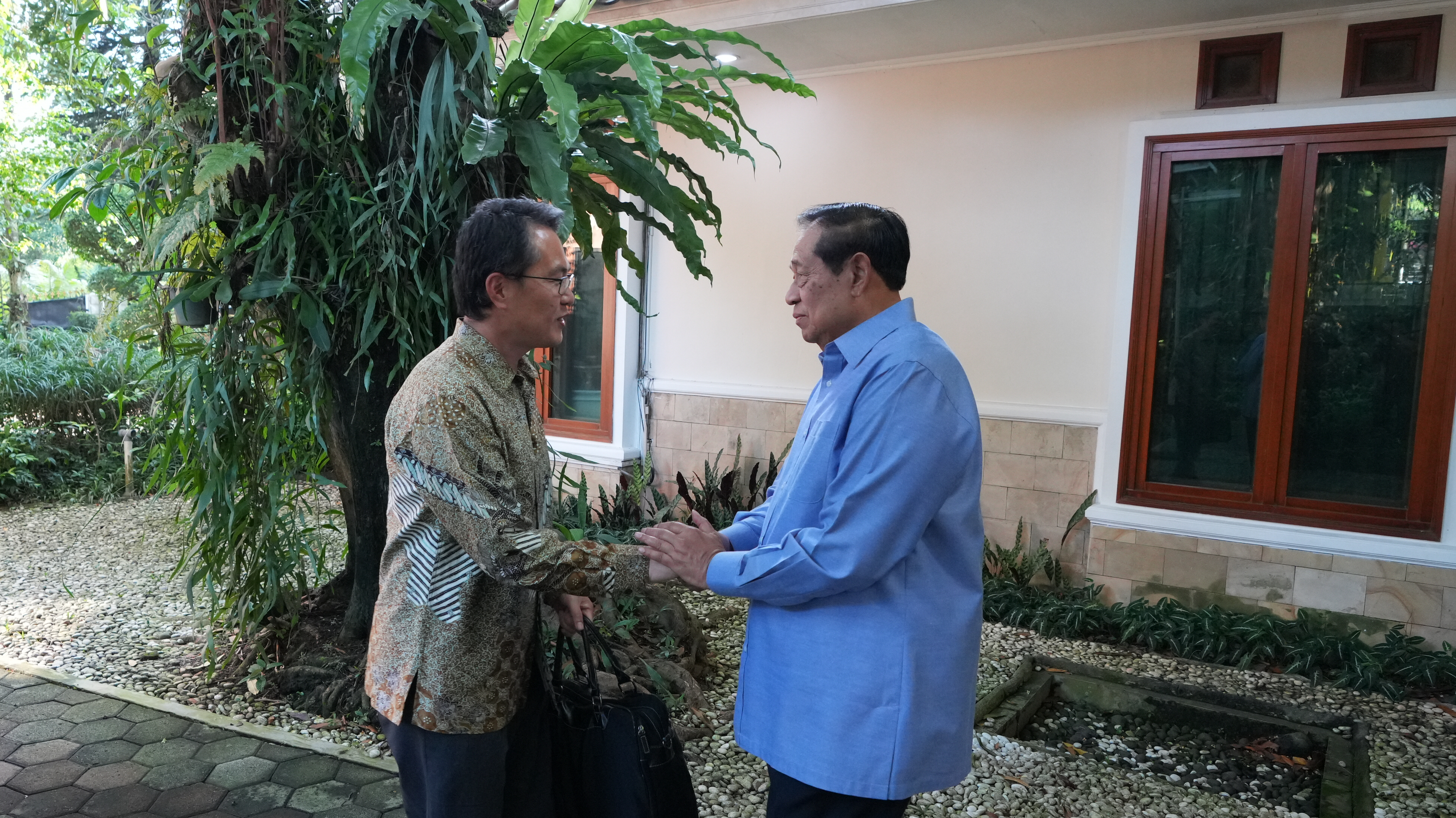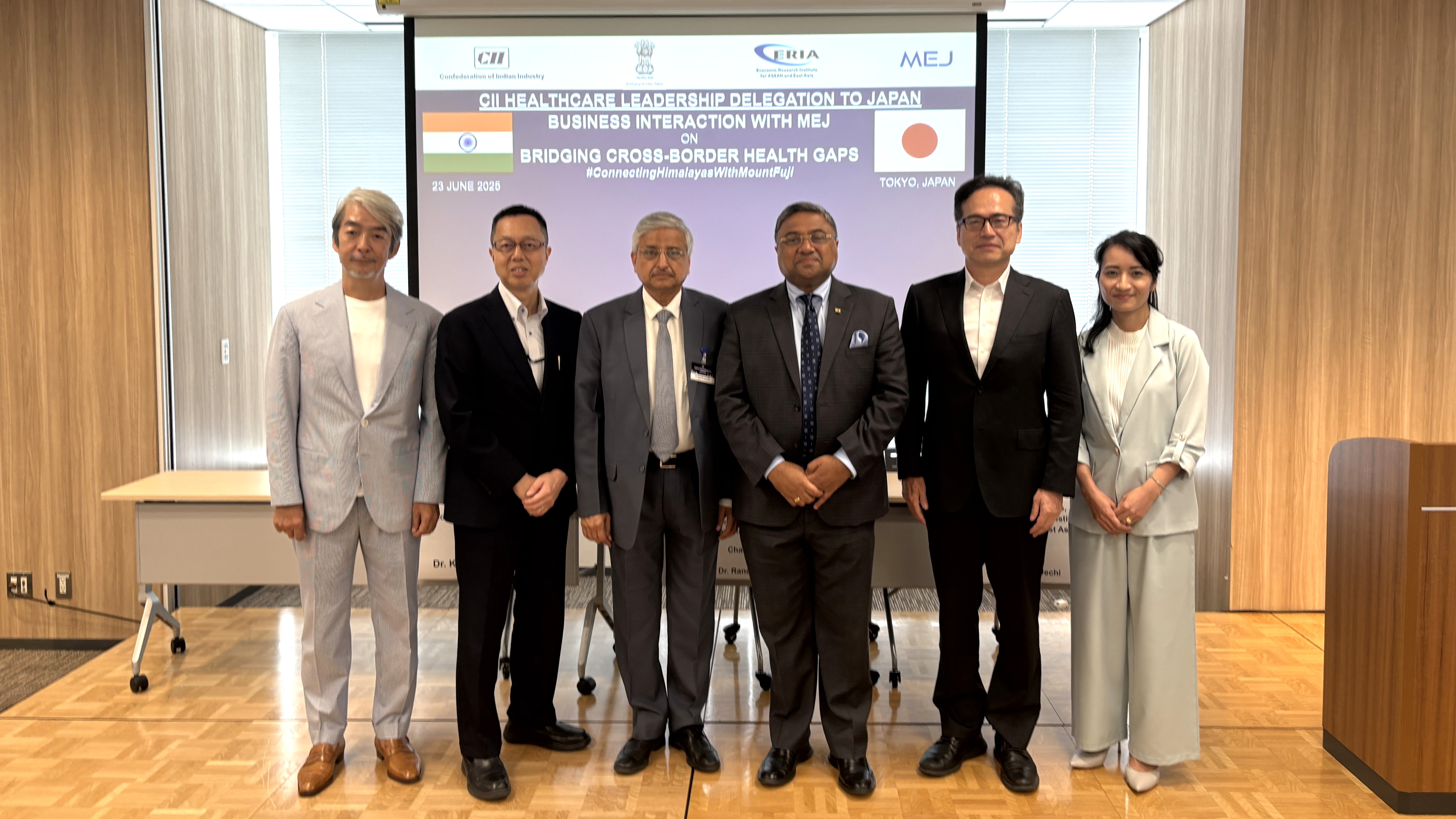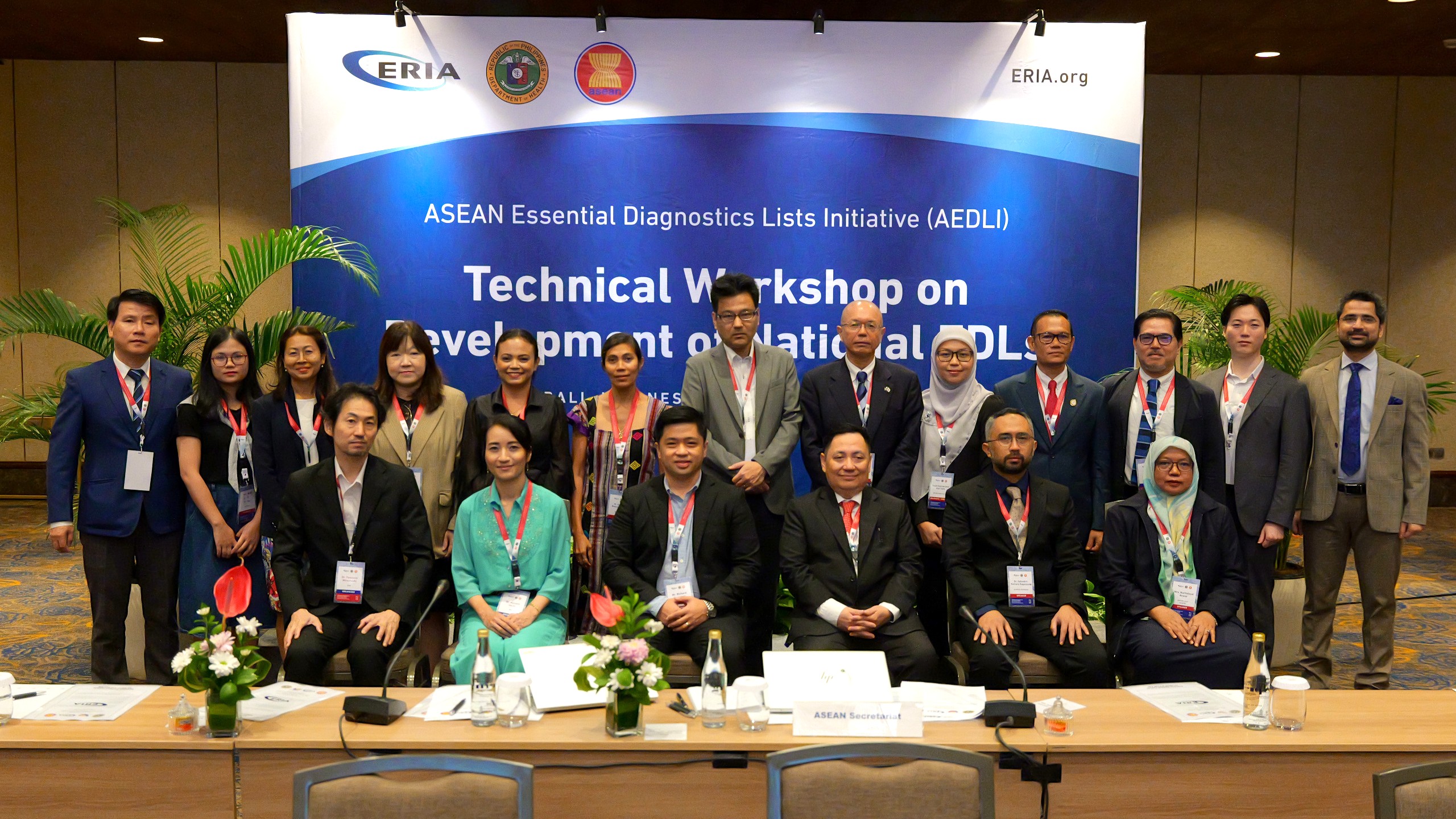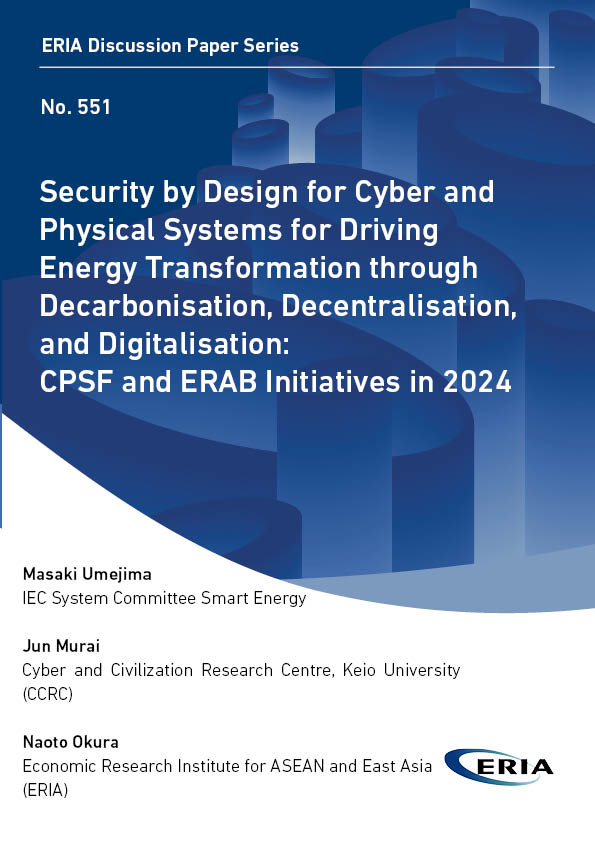Ending Malaria by 2030: Regional Collaboration and Financing in Focus at 9th Asia Pacific Leaders’ Summit
Date:
17 June 2025Category:
Healthcare UnitTopics:
Healthcare UnitShare Article:
Print Article:
Bali, 16–17 June 2025: ERIA participated as a contributing partner in the 9th Asia Pacific Leaders’ Summit on Malaria Elimination, hosted by the Asia Pacific Leaders Malaria Alliance (APLMA) and the Indonesian Ministry of Health. Held under the theme ‘Unity in Action, Towards Zero Malaria,’ the 2-day aimed to strengthen commitments, share effective strategies, and rally support from partner nations and global institutions to eliminate malaria by 2030.
The summit gathered political leaders, experts, stakeholders, and development partners from across Asia Pacific. Representing ERIA's Healthcare Unit were Dr Manami Uechi (Director of Healthcare Unit), Dr Yasuyuki Mitsuhashi (Senior Policy Fellow on Healthcare), Dr Sarah K. Abe (Manager of Healthcare Services), Dr Antonio Villanueva (Senior Research Fellow on Healthcare Policy, Clinical Trials, and Health Development), Dr Achmad Solikhin (Programme Manager of Healthcare Policy), Afifah Patriani (Project Coordinator), and Rahayu Susanti (Research Assistant, Activities).
.jpg)
.jpg)
Day 1: Technical Sessions
Welcoming remarks were delivered Dr Murti Utami Andyanto (Acting Deputy Minister/Director General for Disease Control, Ministry of Health Indonesia) and Dr Tedros Adhanom Ghebreyesus (WHO Director General). Both underlined malaria as an issue of equity, development, and resilience, calling for continued regional collaboration.
The first day featured technical sessions focusing on the latest evidence, innovations, and strategies for malaria control and elimination. Dr Sarthak Das (CEO of APLMA) outlined progress and remaining challenges, citing Pakistan’s gains and persistent risks in Papua New Guinea, Solomon Islands, and Indonesia.
Dr Daniel Ngamije (Director of the WHO Global Malaria Programme) emphasised achievements such as China's malaria-free certification. Presentations from Professor Emeritus Kamini Mendis (WHO Technical Advisory Group on Malaria Elimination and Certification and APLMA’s Board Member) and Dr Ferdinand Laihad (Head of Indonesia’s National Malaria Elimination Assessment Committee and APLMA’s Board Member) highlighted certification efforts in Asia Pacific and Indonesia, respectively.
.jpg)
Key focus areas of the technical sessions were:
- Cross-border collaboration: Emphasising best practices, challenges, and policy alignment in border regions.
- Vector control strategies: Exploring innovative approaches for malaria prevention and elimination.
- Community engagement: Showcasing successful community-led initiatives in malaria-endemic areas.
- Innovations for acceleration: Showing innovative approaches and providing updates on clinical trials for three malaria vaccines (RTS,S/AS01, PfsPZ, and R21/Matrix-M).
- Integrated healthcare system approaches: Discussing synergies between malaria and other disease programmes such as HIV and other vector-borne diseases.
The day concluded with a workshop on Gender, Equity, Disability, Sustainability, and Inclusion (GEDSI) towards malaria elimination; three bilateral meetings between Indonesia and Papua New Guinea, Vanuatu, and Pakistan; and a welcome dinner.
Day 2: High-Level Meetings
The second day centred on sustainable financing. Speakers explored co-financing models and funding sources like the EDEN Initiative (Ending Malaria and Other Climate-Sensitive Vector-Borne Diseases through Enhanced Regional Partnerships), Global Fund, and Green Climate Fund.
Dr Saia Ma'u Piukala (WHO Regional Director for the Western Pacific) welcomed Indonesia to WHO WPRO, stressing the importance of partnerships and domestic resource mobilisation. Dr Peter Sands (Executive Director of The Global Fund) reaffirmed support, highlighting that malaria accounts for 60% of its funding. H.E. Budi Gunadi Sadikin (Indonesian Minister of Health), reiterated national commitment to malaria elimination, while H.E. Susilo Bambang Yudhoyono (Former Indonesian President and Special Advisor for APLMA) delivered a rousing keynote:
‘This summit is more than a meeting. It is a reaffirmation of our collective commitment. And nowhere is this spirit of cooperation more vital than in the Central Indo-Pacific region. We have the technical expertise, the innovation, and the regional momentum to succeed. Because every life saved, every community protected, every child who grows up free from malaria, is a victory for humanity.’
.jpg)
The first panel focused on addressing high-endemic areas – highlighting progress, persistent challenges, and political commitment – and leveraging the EDEN Initiative. Moderated by Lady Roslyn Morauta (Board Chair of The Global Fund and Former First Lady of Papua of Guinea), this session featured H.E. Budi Gunadi Sadikin, H.E. Elias Kapavore (Minister of Health, Papua New Guinea), H.E. Paul Popora Bosawai (Minister of Health, Solomon Islands), H.E. John Still Tari Qetu (Minister of Health, Vanuatu), H.E. Malik Mukhtar Admad Bharath (Minister of State of Pakistan), and Dr Lucas De Toca (Ambassador for Global Health, DFAT, Australia).
Moderated by Professor Emeritus Kamini Mendis (WHO Technical Advisory Group on Malaria Elimination and Certification and APLMA’s Board Member), the second panel highlighted sustaining gains and preventing resurgence in low-endemic areas and countries nearing elimination. H.E. Dr Élia dos Reis Amaral (Minister of Health, Timor-Leste), Dr Zailiza Binti Suli (Official representative of the Minister of Health, Malaysia), Dr Farwa M. Hombre (Assistant Secretary of Health, Public Health Services Cluster, Philippine Department of Health), and Dr Chris Elias (President, Global Development Division, Bill & Melinda Gates Foundation) acknowledged the unique challenges of last-mile malaria elimination – particularly along borders – and risks of increasing zoonotic malaria transmission.
A closed-door session followed, bringing together Indonesia’s national and provincial leaders. The Indonesian government also launched the Presidential Call to End Malaria Initiative (PCMI). This was followed by an awards honouring nine malaria-free districts in Indonesia for their outstanding progress.
A roundtable on ‘Securing Sustainable Financing for Malaria Elimination in Asia Pacific’ followed, chaired by H.E. Budi Gunadi Sadikin. Speakers included:
- Peter Sands (The Global Fund)
- Dr Lucas De Toca (Australia’s Ambassador for Global Health)
- Eduardo Banzon (Human and Social Development Office, ADB's Sectors Group)
- Dr Chris Elias (Gates Foundation)
- Christoph Benn (Joep Lange Institute and Board Chair and APLMA)
- Dr Michael Adekunle Charles (RBM Partnership to End Malaria)
.jpg)
The event concluded with the Summit Chairman’s statement highlighting four key outcomes:
- Major national and bilateral actions, including the launch of Indonesia’s Call to End Malaria Initiative (ICMI) and the Joint Action Plan between Indonesia and Papua New Guinea on cross-border collaboration.
- Regional efforts to close the malaria financing gap through domestic investment, coordinated resource mobilisation, and EDEN countries’ engagement with partners like the ADB.
- Shared priorities, such as addressing climate-related risks, tackling zoonotic malaria and drug resistance, and strengthening regional coordination.
- Calls for sustained global and private sector support to help eliminate malaria.
